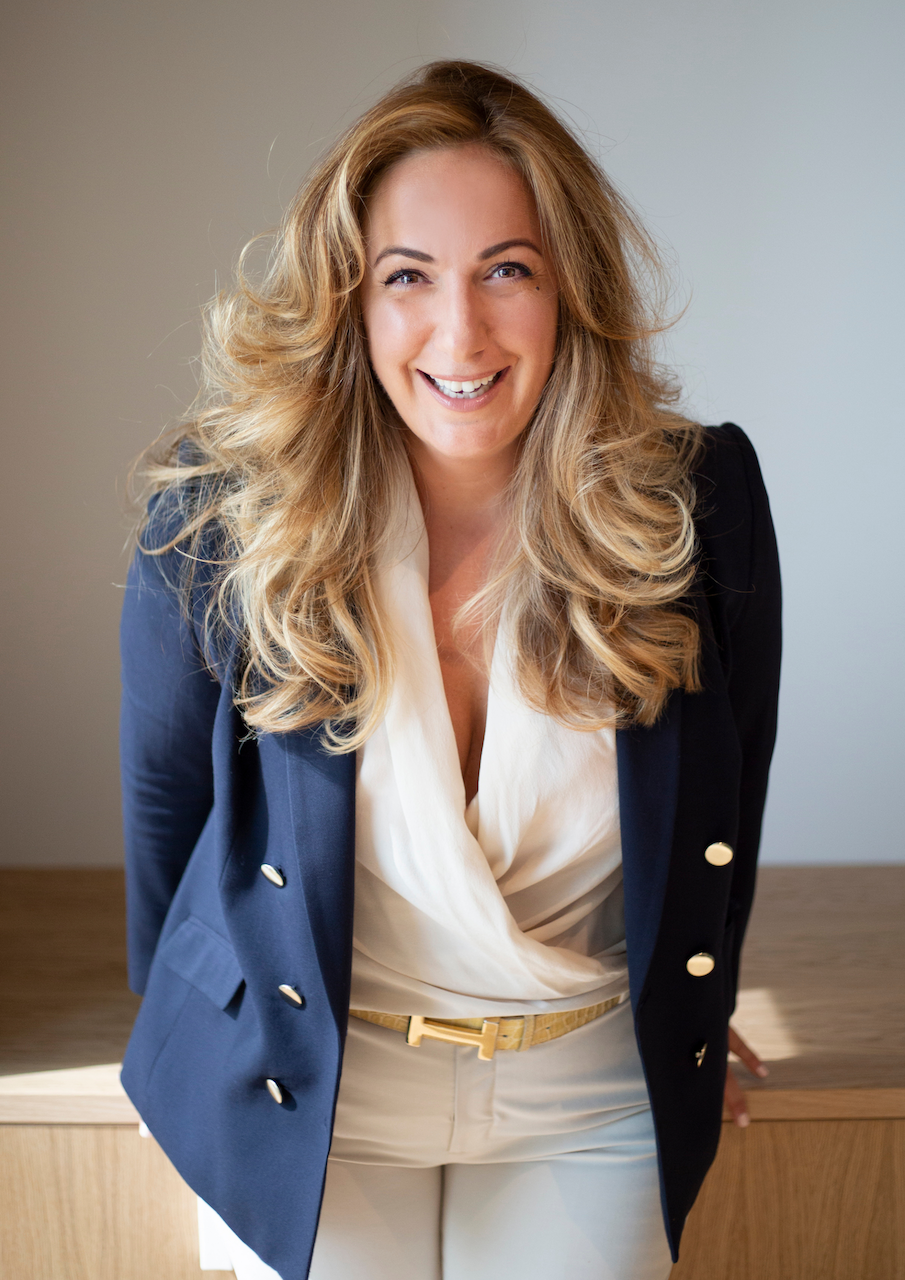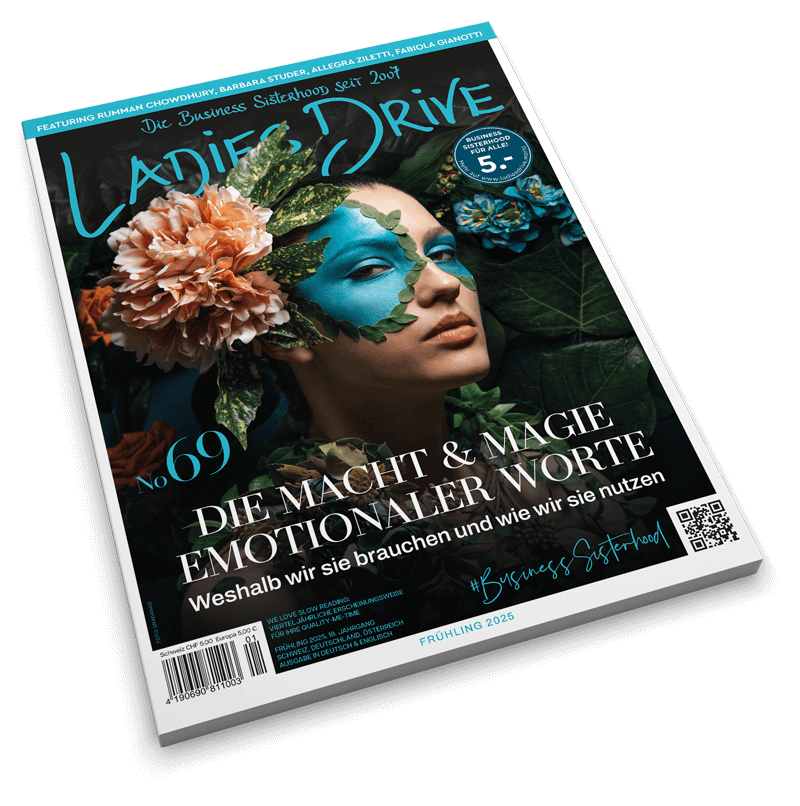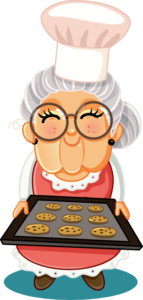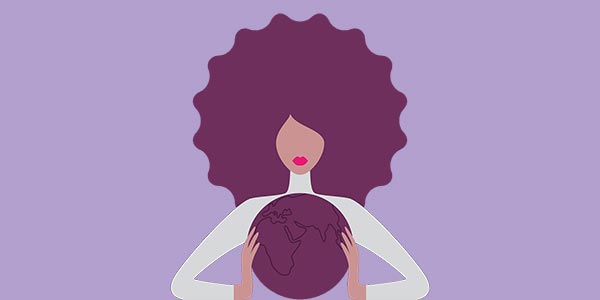As Dominnique says, “There is so much more in between family planning and porn!” … “If a woman is confident enough to speak up in the bedroom, she will be able to speak up in the boardroom as well.” Oh, dear. Dominnique is so right!
Ladies Drive: Your CV is so different than the ones I see from other business women. You seem to be a very free spirit. So you’re the perfect choice for this issue of Ladies Drive which focuses on the freedom of being.
Dominnique Karetsos: It’s my personal mission to change how we perceive autonomy. We don’t know a lot about our autonomy and freedom and we don’t ask enough questions. So we tick the box, like Mrs, Ms or Miss and just assume that it will work for us in a beneficial way. Yes, for some women that is the case. But when you start to scratch beneath the surface you start to identify that systemic issues go way beyond the patriarchy. We’ve become so busy in putting out fires, carving roadmaps or fighting the fight of cause, that we’ve forgotten to ask where the starting line is.
How do you define autonomy?
Autonomy comes from knowledge. Like anything in life when we consider and reflect how we move, it’s not just cultural, there is much, much more that will influence us during our lifetime. Let me share a little bit of the fabrics of my history: My father was Greek, raised in Egypt in a very traditional family. My mother was French Huguenot in a South African country with my grandfather, who was German and a criminal attorney who fought for justice for the African people. I spent part of my life in Greece but a large portion of my youth was spent in South Africa. These are the fibres of my life and have influenced my attitude and the way I listen to the world. Now, when I need to tick that box, what does that look like? We usually don’t stop for a moment and ask: is the world treating me fairly, as an equal? Is the world ready to hear my needs and support my goals? What do I need to know that’s going to impact my autonomy to make decisions not only about myself but also about the people I love, my career, buying a home? Sex, tax and money are key to the conversation about women’s autonomy, so I find it fascinating to talk to people all over the world about these topics. I had the privilege of being a delegate for UN Women UK at CSW65 earlier this year and it was heartbreaking to see that, as women, when we grow older our chances in life just become fewer and fewer and fewer. And it starts round about when you tick that box: Miss, Mrs or Ms. I hope that will change one day. I should have a choice whether or not to declare this imposed societal status. I should be informed about what it means. With a lot of questions we have, whether it’s sexual health or our autonomy, we look for permission to even ask. For instance, on the Greek side of my family the generation before me would never discuss money and business at the table. But with my father I would speak about business and money. On my mother’s side, children were to be seen but not heard. So you didn’t have a voice, a choice or an opinion. It’s interesting to understand the taboos our parent’s generation was having to dismantle so we can create our own fibres, weave our own way. Sexual health, sexuality and sexual identity play a huge part in that.
Are you a Mrs, Ms, or…?
I was a Mrs who then went through an economically crippling divorce. My ex-husband lives nearby and we have an excellent co-parenting relationship for our daughter. We are parents first. I was forced to take the crippling economic blowback of his decisions and was left with nothing, not even a roof over my head. That’s a decision my daughter didn’t get to choose, so we are parents first. Today you have the Economic Abuse SEA act that was brought into the UK parliament in 2017 to support women. I didn’t know! And that’s not an excuse anymore. So now I’m just Dominnique Karetsos. I don’t tick the box. If I have an app and it forces me to do it, I just don’t sign up.
Why is it so key to you, to not tick that box?
Because as soon as you tick that box, a lot of assumptions and a lot of regulations take place automatically in my life that affect me. So for example: if you are a Mrs you get a marriage allowance, so a tax deduction. But I don’t get a tax deduction if I’m a single mum who has a business that employs people, and who doesn’t have debts. By ticking the box, I’m out or in, either way I’m not considered. Let’s have policies that consider other alternatives that take in my whole person. The end result of the economic abuse was bankruptcy. A lot of women suffer from this and there is no system to support them. We need to have a dialogue about that.
Dominnique, what does define you as a woman or how do you define your gender just for yourself?
I define my womanhood through my sexuality. I connect with sensuality, I am a very tactile person. So, touch, for me is important – whether it’s touch and self-efficacy, whether it’s hugging my daughter, whether it’s touching or being affectionate to people that I care about or just very consciously consuming the space around me. Furthermore, for me personally, sensuality is my primary pulse so to speak. It’s my guide and my intuition. Those two things define me as a woman.
Can we look at your life a little bit closer before moving on to this date and what you’re doing with your company today? Do you recall a moment or kind of an epiphany where you found yourself in a situation where you said to yourself: that’s it – now I know what I should do in this lifetime!
Actually, I remember a very specific moment when I knew I had a purpose. And that my purpose was driven by people. I was 21 years old and sitting in my apartment in South Africa – I even can tell you what the air smelt like and how hot it was, as it was early evening – and I remember thinking to myself very excitedly: “There’s something big out there that I’m supposed to be of service to. There’s a story out there that I’m supposed to help narrate.” So I let passion and curiosity lead me from that day on.
What happened in the years after that moment?
I started working with O Boticário, a big Brazilian beauty brand that did $1.2 billion in revenue, equivalent to that of The Body Shop. I was very fortunate to work with them, bringing their brand to South Africa as a General Manager and Marketing Director. This was a time when beauty products in South Africa were made for white skin and blue eyes. So for the first time here was a brand that spoke to women of all colours. That was an incredible time, it enabled women to be able to finally pick a skin tone of a base that would illuminate their smiles or cover a scar, and gave them an enormous amount of self-esteem, confidence and self- love.
I did that for a few years, but I regrettably was involved in a hijacking. When a gun is pointed at your head in your 20’s, it makes you question if you’re in the right place. So I moved to the UK, I didn’t really know anyone but I made my way through in London, continuing my work in the beauty industry with L’Oreal Paris.
One year later I lost my dad. So trauma and loss is…well… it has a ripple effect in your decision making. You shouldn’t make big life decisions while suffering from a trauma, but I did not get the memo. The next four years are a blur. I got married, I had a baby girl, I had a Mum who wanted to have a Greek hotel, like in the movie “Mamma Mia”. So I just remember being pregnant, walking around properties to find the perfect spot for her hotel. And we found it. We found an investor, built up the hotel and I’m very proud to say that my mother is still there today and leads it with great success.
Around this time I became a co-host for BBC Radio. It was lovely because I got to talk about all the things that most hosts can’t, because they’re contractually bound. And so, I would be the one questioning things like “Why can’t we breastfeed in public? It’s our legal right!”, or “Why didn’t someone tell me that by giving birth my body parts would move and vital organs of pleasure are relocated?” or “Why do I have to use a tampon when there’s this little product called the moon cup that’s been sitting at the bottom of the shelf for 15 years?”
I suppose the talking and communicating with people and listening to their stories, really made me question my own journey. I realised I was not doing what I was meant to be doing. And I remember someone saying to me: “Write down all the things you do and all the things you want to let go of. And put a line through the things you want to let go of and then say goodbye and walk away.” When you put your thoughts on paper – it looks pretty remarkable. At the end of this exercise I was left with motherhood and regaining a sense of self, and an appreciation & respect for the person I knew I had the potential to become. So I left what most people would call a ‘successful career’ to take on what I decided to be a ‘significant career’. That’s when it all started for me. Back then our industry didn’t have a fancy name like Sexual Health & Technology. You had family planning. And porn. So I did market research and found there were two big players, one of which was the Scandanavian brand Lelo. One of the founders was in the beauty industry and we were connected and I thought to myself ‘If you don’t ask, the answer’s always no!’ The result was that I inherited a brand called Intimina, one of the first female brands that dealt with menstrual cups and pelvic therapy. I quickly learned how shrouded this industry was in taboos, in systemic shame, in religious and political policies.
To give you one example of the state of the industry back then (just five years ago), we were trying to get a buyer for our menstrual cup but to get access to point of sales we had to get through the buyers, most of whom were men in their early 20s. It took three months of securing the advertising space in front of a lead buyer’s parking spot, so that when we called, he would say, ‘Where have I seen this brand before?’ instead of just putting the phone down. Because, how does one communicate the need for a product that has no relevance to these young men? It’s not easy to explain to these mostly male buyers that there is a difference between a toxic tampon and a menstrual cup. Or that you pee in your pants after you had a kid. We had the products, but we needed a buyer who listened to us. I mean, half the sky is held up with vulva owners, right? But we’ve categorically been ignored and marginalised when it comes to our health needs. I had so many meetings where I was not supposed to say the word sex. Looking back on this now, we’ve come a long way!
Emily Nargoski says it beautifully: “There are as many sexualities as there are people,” and everyone wants to be seen and heard. A lot of innovation in my industry is driven by women: alternative solutions to contraception, to fertility tracking, to menopause, to education and how we talk to our kids about sexual health. But in order to get to market, you need investment. And who are the investors? Men! Can you imagine how many women who are working on sexual health innovations actually receive funding? There is a real need for a drive in investment. And right in the middle of this sits education: the way we talk about these products and how we share the problem. I’m done talking about dysfunctions like we are broken! That language is harmful and is just adding to the taboo. So, innovation, education and investment…
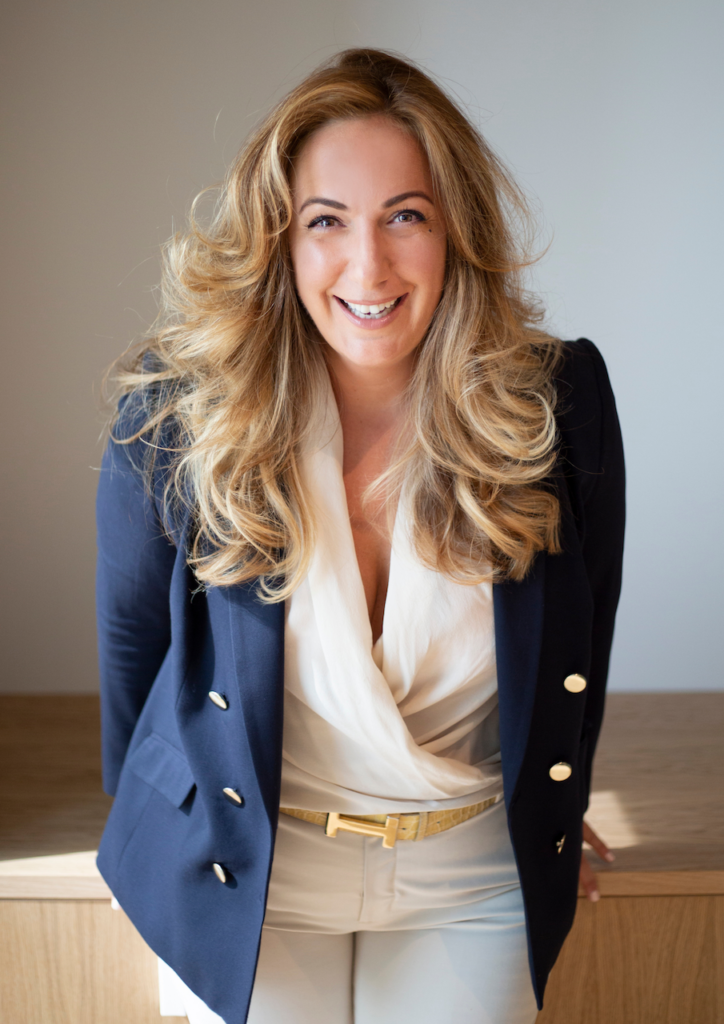
…this is what you provide with your company, The Healthy Pleasure Group?
Yes. Founded and led by women – we want to enable the facilitation of innovative pleasure, insightful pleasure, investigated pleasure and ultimately, healthy pleasure – for everyone. Fortunately, I’m seeing a lot of changes and a collective effort, but we need to continue to normalise language around sexual health, a new way of dismantling taboos and stigmas. As these things are gaining momentum, policy makers will need to react, too.
You started a company in the time of Covid-19?
Yes, and we achieved a lot! We were beyond resilient. That would imply that we absorbed the shock and never changed. But HPG scaled, hired, innovated and we now work across four continents.
We are never remiss of the loss and pain that the world felt and I believe we are all still grieving in some way. For us in the Sexual Health & Technology industry, there was a spotlight on a universal experience during this time: the importance of touch. With a global threat to humanity, there’s nothing like a lack of touch (whether yourself or loved ones) to have us yearning to feel human again. Whether it is to touch to heal, to love, to appreciate or permissible self pleasure; it is a fundamental lifeline for many and to not have this has hurt us.
The Sexual Health & Technology industry is responsible for amplifying our beliefs and habits that consensual pleasure is healthy, good and invaluable to our lives as individuals and as couples and more.
You have offices in London, Barcelona and Los Angeles. That’s impressive.
Knowing that investment, education and innovation is key to fast tracking this space, we created this ecosystem dedicated to Sexual Health & Technology. We have a full service marketing agency and help innovators in our industry to navigate, grow and scale in a digitally censored landscape, while our commercial arm helps brands regarding distribution in different markets. Then we have the Lab in Barcelona, run by my soul sister and co-founder Dr Mafe Peraza Godoy, a world renowned urologist, andrologist and head of sexual medicine. This is where all the fun happens! Finally, HPG is the operating partner of Amboy Street Ventures, a VC fund dedicated to investing in sexual health and women’s health technology start-ups. The thing here is: most of the VCs have a vice clause that lumps sexual wellness into the same category as gambling and drugs. This taboo severely limits the money that is invested in this space. We are showing investors how big the market is and we hope that soon other VCs will start to invest in innovators who are addressing our sexual health & technology needs.
How much money is in that fund?
It’s an early stage fund, managed by Carli Sapir in Los Angeles. We typically invest in seed and Series A, with initial investments in Gennev and DAME.
There is so much potential out there, but in order for any of these products to be successful, we need to invest in education first! For example, in the UK, 9 out of 10 women will need to do pelvic exercises, but only 4 out of 10 know how to do them and it usually takes up to four years before a woman will tell her practitioner that she pees in her pants when she laughs. We need the vocabulary to express that we need help, or that we want to explore, whatever it might be. For a woman it is normal to go from menstrual problems to menopause and I want to see that they can talk about it all without shame or fear.
It really says something about humanity that science only discovered the clitoris medically in the 1980s. We put a man on the moon first!
What could we do to help you on your journey…?
You can start with yourself when it comes to healthy sexuality. Imagine a world where you have consensual pleasure, without shame. Imagine a place where girls and boys get paid the same. Imagine a world where sexual empathy and kindness is as easy as breathing. Imagine a world where someone’s gender identity isn’t any of your business. Imagine a world where we look into the mirror and can truly appreciate our own bodies.
When a woman has the confidence to ask what she wants in the bedroom, she has the confidence to chase any dream or ask for anything in any aspect of her life. But it all starts with yourself: carve a safe space to explore and discover. If you can’t champion your own sexual health, it’s very difficult to champion everyone else’s.
LINK:
wearehpg.com
If you like to know more about Ladies Drive Bargespräche Digital featuring Dominnique:
https://us02web.zoom.us/webinar/register/WN_S4kv1756QzGnvO1NRVf5wA


